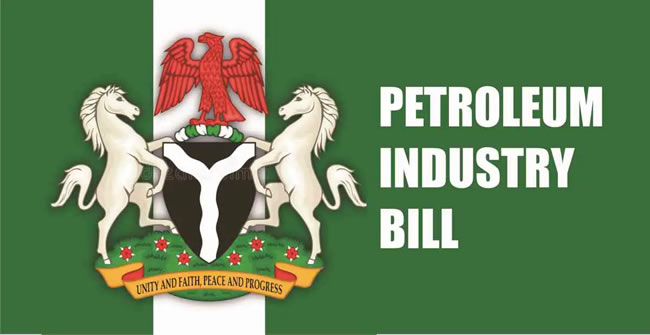A report put together by a Non-Governmental Organisation, Space for Change (S4C) with support from Ford Foundation has recommended a repeal of Section 257(2) of the Petroleum Industry Act (PIA).
A Civil Society group had in November 2023 instituted legal action against the National Assembly and Attorney General of the Federation/Minister of Justice over the passage of Section 257 of the Petroleum Industry Act (PIA), which they described as anti-people.
The contested section of the PIA upholds that in case of vandalism, sabotage, or civil unrest, the host community will forfeit its entitlement of the HCDT funds (which is 3% of the oil company’s operating cost) for repair or replacement of the damaged oil facility, and operating expenditure incurred during production shutdown, or the value of lost oil, gas, condensate, or natural gas liquids.
Speaking at the unveiling of the report on the Petroleum Host Community Development Trusts titled, “Transitioning from GMOU to HCDT: which detailed the wins, challenges, and further actions,” the Chairman, House of Representatives Committee on Host Communities, Hon. Dumnamene Dekor, stated that the well-being of host communities was paramount as the sector constituted over 65 percent of total government revenue and about 90 percent of total export earnings.
He assured that lawmakers will continue to look at gray areas within the PIA, including the part that compels communities to protect pipelines or lose their funds.
“The legislative monitoring of the implementation by oil companies will be crucial to delivering the objectives of this provision in the PIA,” he noted.
On her part, the Executive Director, S4C, Victoria Ibezim-Ohaeri explained that the report chronicles the proceedings of Technical Session of the House of Representatives Committee on Host Communities, examines the extent to which indigenous and international petroleum companies are living up to their statutory obligations to deliver tangible development benefits to the oil-producing areas in Nigeria under the auspices of the Host Community Development Trusts (HCDT).
“The HCDT, mandated by Chapter 3 of the Petroleum Industry Act (PIA) 2021, replaces the previous benefit-sharing mechanism called the Global Memorandum of Understanding (GMOU) wherein oil and gas companies operating in Nigeria executed benevolent, or sometimes, negotiated agreements with their host communities, committing to fund and/or carry out certain community development projects in their areas of petroleum operations.
“With a focus on the critical role of the HCDT in promoting sustainable prosperity and peaceful co-existence between oil companies and host communities, what this report has done is to highlight the wins and challenges associated with HCDT implementation, the emerging good and bad practices, as well as the disparate experiences and modalities established by petroleum corporations for transitioning from GMOU to HCDT,” she said.
She noted that the report identified contentious issues such as the high volume of litigation and protests across oil-producing communities; power asymmetry between petroleum corporations and their host communities; lack of due process and transparency in the nomination of community representatives serving on the governing bodies of the HCDTs.
Others she said, include reprisals targeted at community members speaking up or exposing deficiencies in the HDCTs; inflexibility of oil companies and resistance to innovation; gender imbalance and tokenism; lack of independent monitoring of HCDT implementation; companies’ reluctance to disclose how 3 percent operating expenditure (Opex) is calculated; divestments without environmental accountability, among others.
However, she noted that the 10th Assembly of the Nigerian Legislature, through the House of Representatives Committee on Host Communities, has shown commitment toward addressing the identified bad practices.
“In conclusion, we reiterate our recommendation that Section 257(2) should be expunged from the PIA.
“We also urge the Federal Government to provide adequate funding to regulatory bodies in the midstream and downstream sectors to enable them to perform their regulatory functions of fostering the development of host communities,” she added.
